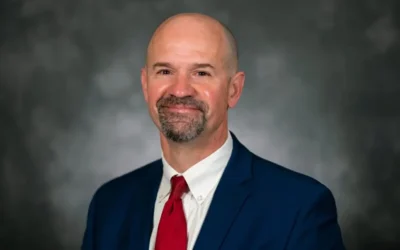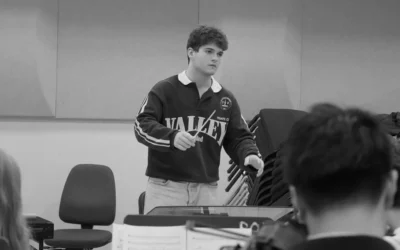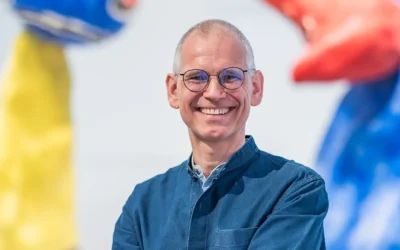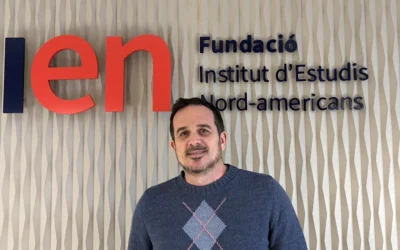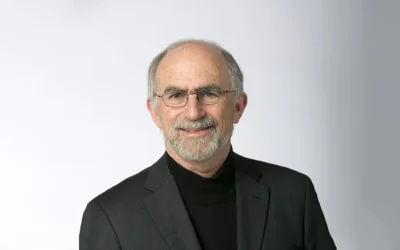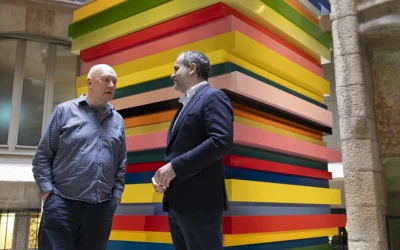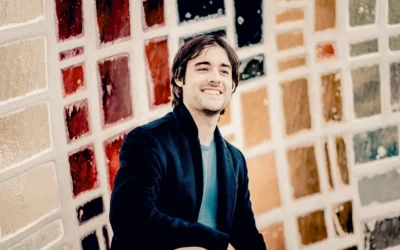Juan Carlos Arranz and Antonio Noguero: “IEN Student’s Committee, a beam of light for the Barcelona of the time“

IEN Patrons and Student’s Committee members
February 14, 1955, people crowded round the doorsteps of the Ritz Hotel in Barcelona. Between conversations and drinks, they exhibited their gala dresses. They had expected that day for a long time: it was the first St. Valentine’s Day celebrated in Barcelona. The day of lovers, which had been popular in the United States for decades, was still not popular in the Catalan city: in the Barcelona of the time, the atmosphere of the post-war period and the censorship of the Franco regime still reigned. However, by the mid-1950s things were beginning to change. The Students’ Committee of the Institute for American Studies was stablished, made up by dozens of students eager to organize all kinds of events in the capital.
With the support of the center’s management, and until the late 1970s, parties such as Saint Valentine’s or Saint Patrick’s were organized, but also film screenings, Christmas evenings, jazz and rock concerts, theatre readings, weekly dances, debates, conferences, excursions… Every Friday or Saturday afternoon were held meetings to organize everything. The activities that were announced were a beam of light for a grey Barcelona. So was the way they chose committee members: with democratic elections. This month, we had the chance to interview two people who had a very important role: Antonio Noguero and Juan Carlos Arranz.
Do you remember when you first stepped into the IEN?
Juan Carlos Arranz (JCA): Of course! It was in 1962. I was 15 at the time and my mother signed me up to study English. I attended all levels. When I got into university, I combined it with my Engineering studies. When I found out that the IEN Student Committee existed, I signed up immediately. I was president for two or three years. It was a great experience that allowed me, for example, to travel a few days to the United States. Over the years, my work took me on different paths, but when I was asked to join the Institute’s Board of Directors, I accepted immediately. I was secretary for 33 years.
Antonio Noguero (AN): In my case it must have been 1958 or 1959. The IEN has not always been on Via Augusta. When I started, I remember being on the Paseo de Gracia, next to the Jardinets de Gràcia. There were the classes. Very close by was the American Library, where we would go to get the books we needed. The parties and activities were held at the American Club, a few meters down, in the building where the painter Ramón Casas lived. In 1961 the IEN moved to the building in Via Augusta, which allowed us to carry out many more activities.
How did the Student’s Committee come about?
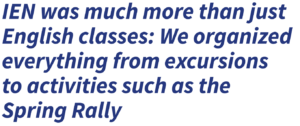 AN: I remember that after class we went to the IEN bar on the first floor of the building, to talk a bit with each other. We were always the same, and we got cheered. “What if we do this? What if we do the other?”. The IEN director saw that we were eager to do all sorts of things and appointed an activity manager to organize everything, Edward K. Flagler. From that moment on everything was shot. The theater company GOGO Teatro Independiente, the Movieclub… All this was not paid for with the income from English classes, but with what we collected from the parties.
AN: I remember that after class we went to the IEN bar on the first floor of the building, to talk a bit with each other. We were always the same, and we got cheered. “What if we do this? What if we do the other?”. The IEN director saw that we were eager to do all sorts of things and appointed an activity manager to organize everything, Edward K. Flagler. From that moment on everything was shot. The theater company GOGO Teatro Independiente, the Movieclub… All this was not paid for with the income from English classes, but with what we collected from the parties.
Therefore, the IEN was much more than an academy…
JCA: Totally. We organized everything from excursions to activities such as the Spring Rally! We divided ourselves into thematic sections and some of our activities had a real echo in the Barcelona of the time.
AN: Each week we had parties on Saturdays and Sundays to finance ourselves. In a way, we were competing with the Bocaccio, the legendary disco on Muntaner street. There was a lot of people!
What did the Committee mean for the Barcelona of the time?
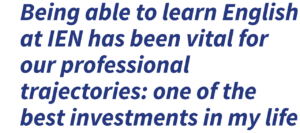
AN: It was a very important element to democratize society and expand the vision of people. The students who were more active from Law School, for example, were always around. It was frequented by actors and actresses like Carles Canut, Mario Gas, Emma Cohen, Santi Sans, Rosa Ma i Josep Ma Garcia-Milà … At that time, there was little mobility and on weekends people came to our parties and shows. Many couples have come out here!
JCA: There is a number that shows the weight of the IEN: throughout its career, more than four hundred thousand Barcelonians have passed through its classrooms, who wanted to learn English at a time when courses were not easily found. There were very progressive people studying here. In the halls you could find everything from Pascual Maragall to Artur Mas. It was a reference site.
You had democratic elections… Franco authorities never said anything to you?
AN: Sometimes, but never much. The members of the Student Committee were chosen by open, live voting in the theatre. It was not something that would be in the newspapers, we did it from doors inside.
JCA: In fact, there was even an election campaign! I remember there were signs asking for votes for some candidates. Who was holding democratic elections in Barcelona at that time? Nobody. We were an island, a rarity.
What has it meant to you to be part of the IEN?
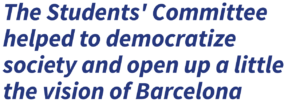
AN: Lots of things! But I’ll stick with one: being able to travel to the United States in 1967. It was very important for me. Thanks to this trip, which I made through the IEN, I discovered a multitude of public relations programs that I later exported to Catalonia. In fact, it was the cradle to found the Superior School of Public Relations, attached to the University of Barcelona, which is still active on Calle Sepúlveda. Speaking English in Spain, in the 1960s, and being able to go abroad was very important.
JCA: You were very impressed on a professional level. In my case, not as much, but I can’t ignore it. English is vital. I have been an Engineer and have worked many years in countries abroad. For me, being able to learn English at IEN has been one of the best investments in my life. I have always told my mother. In my first job as an Engineer, I remember that English helped me to climb many positions within the company. When I was still a student, the company director already sent me to international fairs and important meetings because I could communicate with foreigners.
AN: Now, knowing English is common, but before, it was a very important plus. It was a rarity to study it. In fact, at the time, it was normal to learn French. By traveling to the USA we discovered a completely different society. Much more advanced and open. Just one example: libraries were open 24 hours a day! It was another world.
